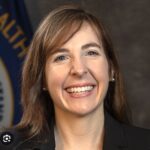
SENATOR PHILLIP WHEELER’S LEGISLATIVE UPDATE
Week 8 of the 2024 Regular Session
After a long weekend dedicated to observing Presidents’ Day, the Kentucky General Assembly returned to Frankfort on Tuesday, energized and ready to tackle the second half of the 2024 Regular Session with renewed enthusiasm and a few extra cups of coffee. The deadline for bill filings is approaching, so all proposals for consideration in Frankfort will be known by the close of next week.
Bills passed by the Senate then move to the House for further consideration. If approved, they are delivered to the Governor’s desk to be signed, vetoed, or left to become law without a signature.
Bills passed this week include:SB 140, which I sponsored and passed, is aimed at addressing COVID-19-related unemployment insurance benefit overpayments (Jan. 27, 2020 – Dec. 31, 2020). In the past several months, I have received numerous calls from constituents who have received notices of large unemployment overpayments even though they were told by the Governor’s Office that they were entitled to draw benefits at the time. I do not think it would be fair to place this hardship on working people who were only relying on what their government told them to do. SB140 will create an amnesty program for workers who innocently drew unemployment benefits through no fault of their own.
The bill would require the Secretary of Education and Labor Cabinet to send new notices by July 1, 2024, giving recipients an additional chance to request a waiver. Recipients would have one year from the notice to request a waiver, ensuring a hearing. The bill would allow reimbursement if recipients prove entitlement to the waiver based on specified statute standards.
SB 14 would address Kentucky Cosmetology Board issues and remove barriers for nail technicians. The legislation would mandate a warning notice before an immediate salon shutdown unless there’s an immediate public health threat. It would require detailed violation descriptions and specific remedies in the notice. SB 14 would also mandate administrative hearings post-emergency order for salons to resume operations. Additionally, the bill would add two new board members—an esthetician and a nail technician.
SB 45, if enacted, would establish the Kentucky Ashanti Alert System to promptly alert the public when a “missing adult” is believed to be in immediate danger of abduction or kidnapping. Developed by the Kentucky State Police (KSP), it would utilize existing resources like electronic highway signs and the Amber Alert System. The system would encourage law enforcement cooperation, operate within existing budgets, and activate based on KSP’s assessment for public safety and secure recovery.
SB 48 would increase the time in which two separate offenses of theft by unlawful taking must occur for the offenses to be combined and the value of the property aggregated to determine the appropriate charge.
SB 65 would nullify administrative regulations found deficient by the Administrative Regulations Review Committee in 2023. It would prevent any administrative body from creating similar regulations until 2025.
SB 74 would establish a state maternal fatality review team to enhance the monitoring of child and maternal fatalities. It would define the team’s jurisdiction and require cooperation with an external child fatality review panel. Additionally, it would direct the Cabinet for Health and Family Services to publish an annual report on hospital delivery procedures starting December 1, 2024.
SB 91 would streamline Kentucky driver’s licensing services by mandating the establishment of at least one regional office in each senatorial district by July 1, 2025. The bill would allow county clerks to choose to provide operator’s licenses or personal ID cards. It would also permit third-party entities to issue licenses, with associated costs and a potential convenience fee. Additionally, the bill would initiate a Kentucky State Police pilot project for skills testing, reducing travel for high school students in five counties without a regional office. The pilot program would operate from September 1, 2024, to June 30, 2026.
SB 107 would address various transportation issues, including restricting semi-trucks from the left lane except in certain conditions, streamlining commercial vehicle registration, enforcing towing regulations, adding organ donation information to driver education, and allowing for adjustments to certain fees.
SB 126 would propose amending the Constitution of Kentucky to limit a governor’s ability to issue pardons or sentence commutations before an election. The aim would be to enhance accountability and prevent potential misuse of executive power during sensitive political periods. If passed by the House with the approved three-fifths majority, it would move to a future general election ballot.
SB 131 addresses the tricky business of manipulated content through the rapid rise of Artificial Intelligence (AI). This includes altered videos or audio in political messages during elections. The measure aims to ensure more honest and fair elections. It would allow for a candidate whose appearance, action, or speech is altered through the use of altered media in an electioneering communication to seek legal action and damages, developers and owners of the software, and the individual or entity responsible for creating the content. The bill defines “Electioneering communication” as any communication broadcast, mail piece, or telephone call that refers to any candidate for any state, county, city, or district office or to any ballot measure. It also defines “synthetic media” as an image, audio recording, or video recording of an individual’s appearance, action, or speech that has been intentionally altered with AI software and bars its use in electioneering disclosure.
SB 162 would facilitate access to vehicle history and accident reports for consumers considering purchasing a vehicle. The bill would allow law enforcement agencies to retain and provide these reports to interested parties, enhancing transparency and consumer confidence in the used car market.
SB 163 would permit local authorities to opt for cremation as a cost-saving measure for unclaimed deceased individuals under their care. The bill would offer flexibility to manage such situations efficiently while potentially reducing financial burdens on local governments.
SB 174 would improve efficiency and service to Kentucky consumers. The bill would exempt communication service providers from the requirement to call 811 before they hook up residences and other properties to communication terminals. This process typically only requires communication service providers to dig down a few inches, where it is highly unlikely they would impact other utilities in the area. The requirement to call 811 in advance can delay hooking up the service.
SB 191 would make minor adjustments to Kentucky’s public postsecondary education system’s performance-based funding model. The bill would redefine “Nontraditional age students” as individuals aged 25 to 64. The aim would be to narrow achievement gaps by enhancing credential and degree attainment in this demographic. Proposed changes include revising funding percentages for public universities, introducing a weighted premium for credentials aligned with the state’s economic needs in the Kentucky Community and Technical College System (KCTCS) funding formula, and incorporating nontraditional-age students into outcomes credit. The Council on Postsecondary Education would be directed to implement these changes by April 1, 2024, with an emergency declaration for immediate enactment upon filing with the Kentucky Secretary of State’s Office.
The session is heading to a close, but there is still much work to be done. Final budgetary requests are due next week, and I will be fighting for Eastern Kentucky to get its fair share.
Thank you for your continued engagement in the 2024 Regular Session. It is a privilege to represent you in Frankfort.
I’m excited for this session and take my responsibilities representing you seriously, and will continue to ensure that legislation is passed with eastern Kentucky’s best interest in mind. Please do not hesitate to contact my office if I or my staff can assist you by emailing me at Phillip.Wheeler@lrc.ky.gov or call toll-free at 1-800-372-7181.
###
Senator Phillip Wheeler, R-Pikeville, represents Kentucky’s 31st Senate District, including Elliott, Johnson, Lawrence, Martin, and Pike Counties. Wheeler is vice chair of the Senate Economic Development, Tourism, and Labor, and the Senate Judiciary committees. He is also Capital Planning Advisory Board co-chair. Additionally, Wheeler serves as a member of the Senate Transportation, Natural Resources and Energy, State and Local Government, and Transportation committees.














